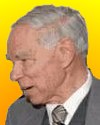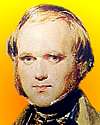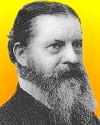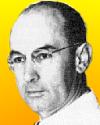
On 19 Apr 1892, the first Duryea automobile was operated by pioneer manufacturer Charles E. Duryea. This would become the model for the first automobile regularly made for sale in the U.S.
In 1915, Charles Duryea published The Automobile Book: a Practical Treatise on the Construction, Operation and Care of Motor Cars Propelled by Gasoline Engines. You can read his short review of the history of the automobile up to that time in his first chapter, Anticipations of the Motor Car. You may be wryly interested in his concluding remarks about electric vehicles.
In the third chapter, he writes about Practical Points on Motor Cars, and therein you may begin to appreciate exactly what it meant for the eager new owner of a 1915 automobile to become “acquainted with it.” If taking delivery on a 1915 car, mark Duryea's advice to a new owner to avoid spectators “quite willing to enjoy to the fullest any amusement which they could derive from his lack of experience. Under such conditions, few men can retain their self-control and reasoning faculties to the fullest…”
As for testing the fuel mixture: “This can be tested by removing a spark plug, and holding a lighted taper, or match, well down in the hole… In making this test, be sure to keep the face and fingers out of the way of the flame, which will extend a foot or two, and is so hot, that it is liable to burn one’s fingers badly, and singe one’s face and hair.”

On 19 Apr 1912, Glenn Seaborg was born, the American nuclear chemist whose work producing new elements was recognized by being the only person to have an element named after him while still alive: element 106, seaborgium. Today's book pick is: , by . This autobiography (completed after his death by his son) is engaging and readable throughout - a “page-turner” giving a compelling portrait of a man in love with science. His life is synonymous with the beginning of the Nuclear Age, yet he became a firm and effective advocate for peaceful applications of nuclear energy and of nuclear arms limitation.
It is available from Amazon, typically about (As of earlier time of writing - subject to change.)
 | False facts are highly injurious to the progress of science, for they often long endure; but false views, if supported by some evidence, do little harm, as every one takes a salutary pleasure in proving their falseness; and when this is done, one path towards error is closed and the road to truth is often at the same time opened. |
 | Another characteristic of mathematical thought is that it can have no success where it cannot generalize. |
 | People must understand that science is inherently neither a potential for good nor for evil. It is a potential to be harnessed by man to do his bidding. |
| Before you look at today's web page, see if you can answer some of these questions about the events that happened on this day. Some of the names are very familiar. Others will likely stump you. Tickle your curiosity with these questions, then check your answers on today's web page. | |
| Births | |
 | Glenn T. Seaborg, born 19 Apr 1912, was an American nuclear chemist. During 1940-58, Seaborg and his colleagues at the University of California, Berkeley, produced nine of the transuranic elements (plutonium to nobelium) by bombarding uranium and other elements with nuclei in a cyclotron. What name did he coin for the series in which the new elements were placed? |
 | Ole Evinrude, born 19 Apr 1877, was inventor and manufacturer of the outboard marine engine. He patented his first in 1910. It quickly replaced steam and foot-driven motors for boats and spurred a new industry. The result was the Evinrude Outboard Motor that remains popular to this day. What was Evinrude's nationality? |
| Deaths | |
 | A French physical chemist (1859-1906) shared the Nobel Prize for Physics in 1903 for his studies of radioactive substances. He conducted his research under conditions of much hardship and barely adequate laboratory facilities. What is the name of this scientist? |
 | Charles Robert Darwin (1809-1882) was an English naturalist renowned for his documentation of evolution and for his theory of its operation, known as Darwinism. His evolutionary theories were propounded chiefly in two of his works - The Origin of Species (1859) and Descent of Man. What is the next phrase in the full title of the book, which begins: The Origin of Species… |
| Events | |
 | On 19 Apr of a certain year, Albert Hoffman chose to deliberately ingest 250 micrograms of the Lysergic Acid Diethylamide (LSD) he had synthesized at the Sandoz Laboratories in Basel, Switzerland. Three days earlier he had accidentally absorbed some through his skin by touching a container of the drug. From the accidental exposure he experienced restlessness, dizziness and hallucinations: “extreme activity of imagination.” In which decade did Hoffman first deliberately experience the effect of the drug LSD? |
Fast answers for the previous newsletter for April 18: gallium • diode • photoelectric effect • Erasmus Darwin was the grandfather of Charles Darwin • the airplane was a jet, making the first U.S. jet passenger international trip.
 If you enjoy this newsletter, the website, or wish to offer encouragement or ideas, please send feedback by using your mail reader Reply button.
If you enjoy this newsletter, the website, or wish to offer encouragement or ideas, please send feedback by using your mail reader Reply button. Your click on a Facebook, StumbleUpon, or other social button on the site webpages is also a welcome sign of appreciation. Thank you for using them.
© This newsletter is copyright 2020 by todayinsci.com. Please respect the Webmaster's wishes and do not put copies online of the Newsletter — or any Today in Science History webpage. (If you already have done so, please remove them. Thank you.) Offline use in education is encouraged such as a printout on a bulletin board, or projected for classroom viewing. Online, descriptive links to our pages are welcomed, as these will provide a reader with the most recent revisions, additions and/or corrections of a webpage. For any other copyright questions, please contact the Webmaster by using your mail reader Reply button.
--
If you do not want to receive any more newsletters, Unsubscribe
To update your preferences and to unsubscribe visit this link
Executive Real Estate Business Class
-
"It was like a man with wings. It wasn't like anything you'd see on TV or in a monster movie." ...
About the publisher
Search This Blog
Blog Archive
-
▼
2021
(585)
-
▼
April
(57)
- On This Day for April 30 - George Washington inaug...
- Newsletter for Friday 30 April.
- On This Day for April 29 - British royal wedding, ...
- Newsletter for Thursday 29 April.
- On This Day for April 28 - Benito Mussolini execut...
- Newsletter for Wednesday 28 April.
- On This Day for April 27 - Independence for Sierra...
- Newsletter for Tuesday 27 April.
- On This Day for April 26 - Chernobyl nuclear accid...
- Newsletter for Monday 26 April.
- On This Day for April 25 - Hubble Space Telescope ...
- See How They Tracked Down Bin Laden
- Newsletter for Sunday 25 April.
- On This Day for April 24 - Installation of Pope Be...
- Newsletter for Saturday 24 April.
- On This Day for April 23 - Voting for Eritrea's in...
- Earth Day Bonus: Become a Climate Action Expert
- On This Day for April 22 - First Earth Day, Miguel...
- On This Day for April 21 - French elections held, ...
- Newsletter for Wednesday 21 April.
- On This Day for April 20 - Explosion on the Deepwa...
- Newsletter for Tuesday 20 April.
- On This Day for April 19 - American Revolution beg...
- Newsletter for Monday 19 April.
- On This Day for April 18 - The midnight ride of Pa...
- Newsletter for Sunday 18 April.
- On This Day for April 17 - Canada Act proclaimed, ...
- Newsletter for Saturday 17 April.
- On This Day for April 16 - Harriet Quimby's flight...
- Newsletter for Friday 16 April.
- On This Day for April 15 - Sinking of the Titanic,...
- Newsletter for Thursday 15 April.
- On This Day for April 14 - Abraham Lincoln shot, J...
- On This Day for April 13 - Alfred Dreyfus imprison...
- Newsletter for Tuesday 13 April.
- On This Day for April 12 - Launch of first space s...
- Newsletter for Monday 12 April.
- John of Gaunt: father of England’s medieval monarchy
- On This Day for April 11 - Napoleon's abdication a...
- Newsletter for Sunday 11 April.
- On This Day for April 10 - Anschluss approved in A...
- On This Day for April 9 - Fall of Baghdad, Jørn Ut...
- Newsletter for Friday 9 April.
- On This Day for April 8 - Celebration of the Buddh...
- On This Day for April 7 - Jack Nicklaus's first Ma...
- Newsletter for Wednesday 7 April.
- On This Day for April 6 - Olympics revived, Raphae...
- On This Day for April 5 - Battle of Maipú, Colin P...
- The history and origins of Easter
- On This Day for April 4 - Martin Luther King, Jr.,...
- Newsletter for Sunday 4 April.
- On This Day for April 3 - Implementation of the Ma...
- Newsletter for Saturday 3 April.
- On This Day for April 2 - Death of Pope John Paul ...
- Newsletter for Friday 2 April.
- On This Day for April 1 - Creation of Nunavut, Ser...
- Newsletter for Thursday 1 April.
-
▼
April
(57)
-
Blogroll
-
About
HistoryFact










0 comments:
Post a Comment